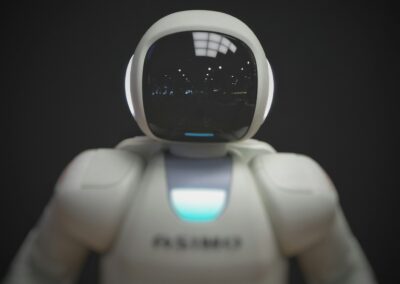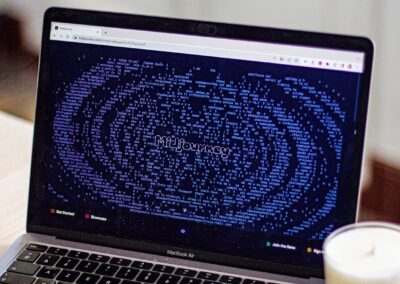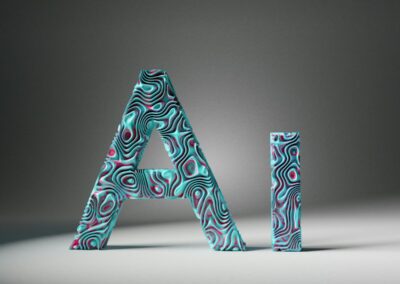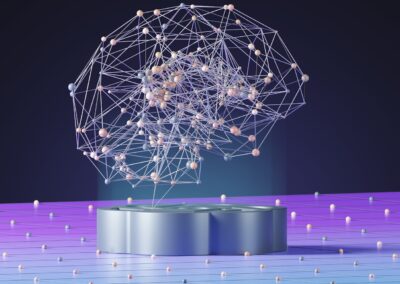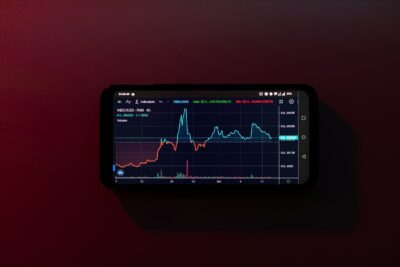Understanding The Singularity: Definitions and Perspectives
Defining the Singularity: Varied Theoretical Perspectives
The concept of the singularity refers to a hypothetical future point where technological growth becomes uncontrollable and irreversible, resulting in unforeseeable changes to human civilization. This idea is explored through various theoretical lenses, each offering distinct definitions and interpretations. The singularity is often associated with the advent of superintelligent artificial intelligence (AI), which is expected to surpass human cognitive capabilities and potentially transform all aspects of society.
Ray Kurzweil, a prominent futurist, defines the singularity as a point in time when artificial intelligence will surpass human intelligence, leading to exponential growth in technological advancements. Kurzweil predicts that this will occur around 2045, driven by the accelerating pace of technological progress. This perspective emphasizes a deterministic view of technology, suggesting that the singularity is a near-inevitable outcome of current trends in AI and machine learning.
In contrast, other theorists, such as Nick Bostrom, offer a more cautious approach. Bostrom’s perspective focuses on the ethical and existential risks associated with the singularity. He highlights the uncertainty surrounding the exact timeline and nature of the singularity, stressing the importance of developing robust safety measures and governance structures to manage potential risks. This approach reflects a more measured view of the singularity, emphasizing the need for careful consideration of the broader implications of advanced AI technologies.
Timelines and Predictions: Divergent Views on the Singularity
The timeline for the singularity remains a subject of considerable debate among experts. The singularity perspectives and timeline vary significantly, reflecting differing views on the pace of technological advancement and the feasibility of reaching this pivotal point. Kurzweil’s optimistic prediction places the singularity around 2045, suggesting a rapid acceleration in AI capabilities and technological development. This view is supported by the observation of exponential growth in computing power and advancements in AI research.
On the other hand, some experts argue for a more extended timeline. For example, the late physicist Stephen Hawking expressed skepticism about the imminent arrival of the singularity, citing the complexity of achieving true superintelligence and the potential for unforeseen obstacles. Hawking’s perspective suggests that while the singularity may eventually occur, it could be much further off than some predictions suggest, possibly extending well into the 22nd century.
Furthermore, there are theories that the singularity might never occur, or at least not in the form commonly envisioned. Some researchers argue that technological progress may plateau or face significant barriers that prevent the realization of a true singularity. These perspectives highlight the uncertainty and variability in predicting the future trajectory of technological development, emphasizing the need for a flexible and adaptive approach to understanding and preparing for potential outcomes.
The Singularity’s Implications: Societal and Technological Impact
The potential arrival of the singularity carries profound implications for society and technology. If Kurzweil’s predictions prove accurate, the singularity could lead to unprecedented advancements in fields such as medicine, energy, and space exploration. The integration of superintelligent AI could drive innovations that address pressing global challenges and enhance human capabilities in ways currently unimaginable.
However, the potential risks associated with the singularity also warrant serious consideration. As Bostrom and others have highlighted, the development of superintelligent AI presents significant ethical and existential risks. Ensuring that AI systems are aligned with human values and goals will be crucial to preventing adverse outcomes and ensuring that technological progress benefits society as a whole.
In regions like Saudi Arabia and the UAE, where technological innovation is a key driver of economic and social development, the implications of the singularity are particularly relevant. Embracing the opportunities presented by advanced AI and other emerging technologies while addressing the associated risks will be essential for maintaining a competitive edge and ensuring sustainable growth. As leaders and decision-makers in these regions continue to invest in and shape the future of technology, understanding and preparing for the potential impacts of the singularity will be crucial for navigating this transformative period.
Conclusion
In conclusion, the singularity perspectives and timeline offer a diverse range of definitions and predictions about the future of technology. While some experts foresee the singularity as an imminent event driven by rapid advancements in AI, others advocate for a more cautious and measured approach. Understanding these varying perspectives and preparing for both the potential opportunities and risks associated with the singularity will be crucial for navigating the future of technology. As we move forward, continued exploration and thoughtful consideration of these issues will help shape a future where technological progress benefits all of humanity.
#Singularity #TechnologicalSingularity #AITechnologies #FutureTechnology #TimelineOfSingularity #SaudiArabia #UAE #Riyadh #Dubai #ArtificialIntelligence #ModernTechnology #Leadership #ProjectManagement



